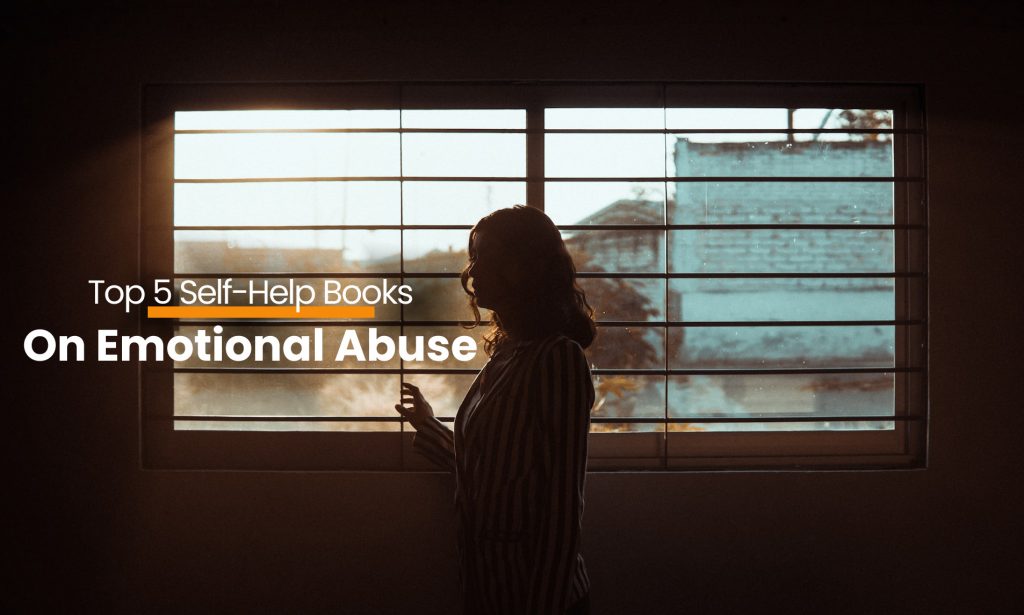Relationships are complex and the dynamics are hard to understand — even worse, difficult to resolve if they are challenging. Speaking of relationships, we mostly refer to familial and romantic ones, but professional ones cannot be kept out of the ambit either. While positive relationships nurture and have the power to build and make us strong and confident; certain types of relationships can have crushing and disastrous effects on our personality, and should be terminated at best.
Emotional abuse is synonymous with psychological abuse that has a debilitating impact on our overall well-being. In a relationship that is going awry, we usually have an abuser on one end of the spectrum, and a victim on the other end. The abuser is perceived to be the dominant and aggressive one in the relationship who regularly violates the sanctity of the relationship by subjecting their victim to constant humiliation, threats, and physical/verbal/mental cruelty, depriving the latter of their sense of worth and dignity.
An abuser can be a parent, a partner/spouse, a sibling, or even a boss at work. Often it is difficult to spot the early signs of abuse, even for the victim. When the signs go unnoticed or are ignored for long, consequences are bound to follow and could be fatal, even leading to self-harm, and/or the permanent physical or mental breakdown of the victim. It is important to be informed and take matters in hand before things come to such a sorry (and often irreparable) pass.
In the following section, we have listed a few books by noted authors and experts that can help you deal with, and put an end to emotional abuse.
1) Emotional Abuse Workbook: A Life-Changing Guide To Breaking The Cycle Of Manipulation and Rebuilding Your Self-Esteem
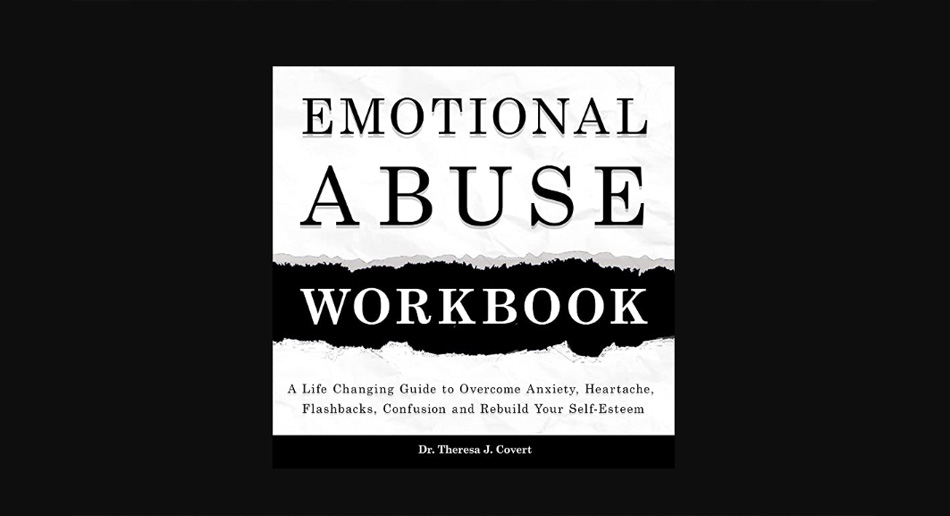
Author: Dr. Theresa J.Covert
Print Length: 236 pages
Language: English
The book talks about how you can identify signs of emotional abuse. Most emotional abuse victims are unaware of the vicious cycle they get sucked into; and even when they are aware, they do not know of resources that can help them break this cycle. This book works to eradicate many false assumptions of the victims and teaches them to effectively break themselves free of repetitive trauma.
It elaborates on the palpable signs of emotional abuse like self-doubt and questioning your sanity; second-guessing your memory; suffering from feelings of inferiority; feeling misunderstood; loneliness; ruined self-confidence; uncharacteristic insecurity or jealousy; paranoia; self-isolation; a desperate need to explain yourself; detached from real self; feelings of anxiety and depression.
It is a workbook authored by an expert who has the knowledge, training, education, and experience to handhold you through an emotional catastrophe. She warns, however, that nothing is quick-fix; only persistence and a strong mindset can help you overcome the tough patch. She guarantees that her methods have worked for herself and so many of her clients who passed from a state of utter frustration to one of crystal clarity. It details a long journey from early identification to setting boundaries, learning the difference between healthy and unhealthy relationships, emotional healing and finally learning to move on.
The tone is caring and supportive, which helps establish a rapport between the healer and you. What’s best — you work at your own pace and convenience. The approach is gentle and never forceful.
2) Healing From Hidden Abuse: A Journey Through The Stages Of Recovery From Psychological Abuse
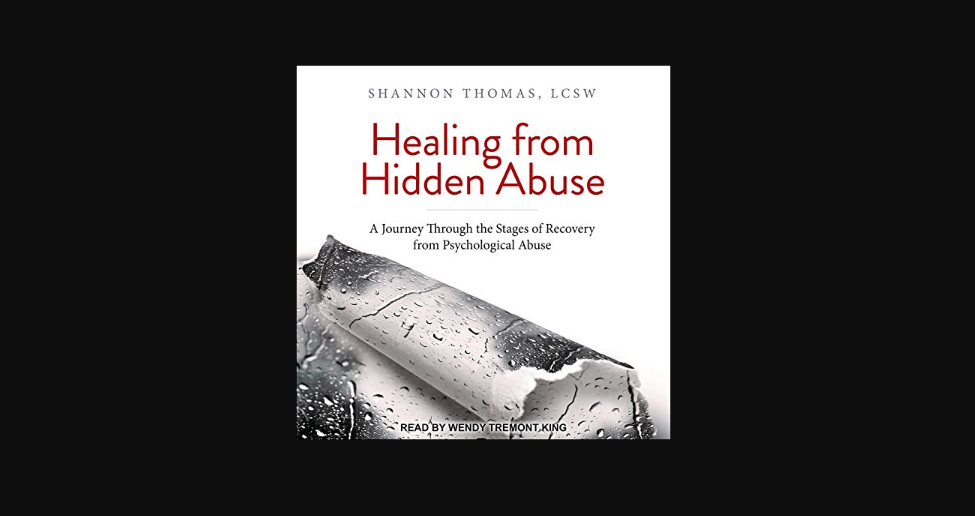
Author: Shannon Thomas
Print Length: 284 pages
Language: English
Toxic people are ubiquitous — they are found in families, amongst couples, companies, friends, and everywhere. The emotional abuser is one who frequently plays devilish mind games to exert control over the significant other in relationships. Psychological abuse is silent and threatening — it may not have tangible bruises but the effects on the victim are nonetheless painful, and frequently more harmful than having broken bones. The book effectively outlines 6 recovery stages from emotional abuse, all of which are extremely well-researched and developed by the author. The stages are — Despair, Education, Awakening, Boundaries, Restoration, and Maintenance. A guided reflection journal is also attached at the back of the book to help the reader go deeper in their application of the 6 stages of recovery.
3) Bruised but not Broken: Stories of Survival from Domestic and Intimate Partner Abuse
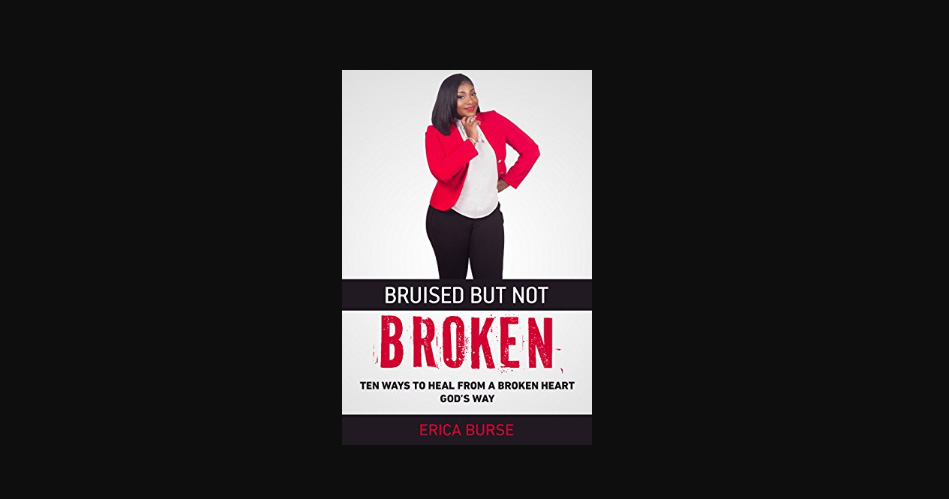
Author: Parthenia Warford
Print Length: 170 pages
Language: English
According to national statistics, about 20 people in the US are physically abused by an intimate partner every minute. The book begins by sharing alarming statistics of domestic and emotional abuse in the US with its readers. Victims of such constant abuse often feel unheard and misunderstood, besides being shattered every which way. Those who have not had any first-hand experience of emotional abuse, have suffered from collateral damages by being impacted secondarily from the severity of the issue (children of abused parents).
The book also contains first-hand horrifying tales of survivors of emotional abuse, and highlights the testimonies, bringing them into the readers’ personal space — also exposing the flaws of the judicial system that has failed to deliver justice to the abused.
The author takes the frontline in asserting that a change in society is possible and we can all collectively contribute to ending this epidemic of domestic and emotional violence/abuse only if we are ready to acknowledge it as an existing evil in society as the first step. We should put an end to emotional abuse which is so rampant everywhere by extending a helping hand, listening ears, and encouraging them to speak up by breaking their silence.
4) Gaslighting: The Narcissist’s Favorite Tool Of Manipulation
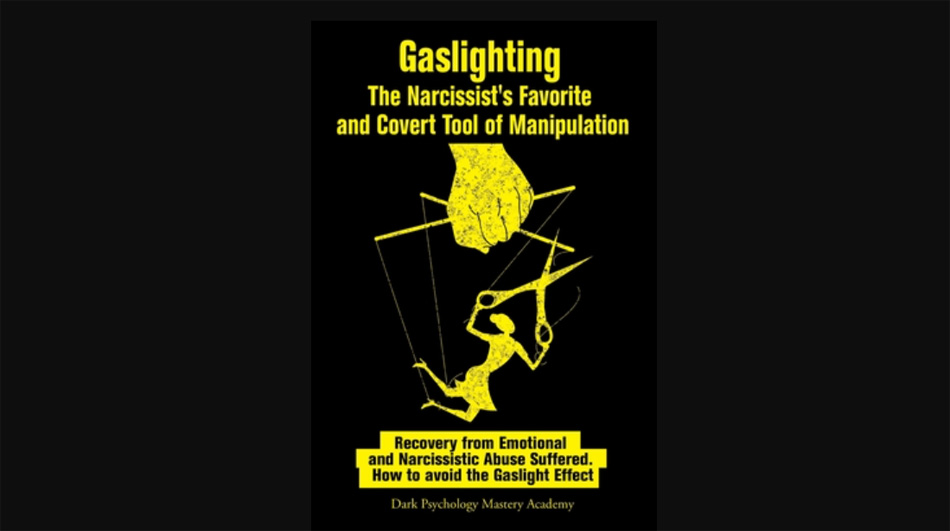
Author: Dr. Theresa J.Covert
Print Length: 140 pages
Language: English
The book goes on to describe and define gaslighting and its effects. The author points out that it is not even officially recognized. Even when it is known, few know how to deal with it effectively. The fact is — spending life with a narcissist for a reasonably long time can have catastrophic effects on the abused.
The author lists out a questionnaire for her readers to identify if any of the situational questions asked sound familiar and fit their life situations. Gaslighting is a covert aggressive way of distorting another person’s perception of reality to the point that that person questions their sanity or their memory. It wrongly makes you believe that you can’t trust yourself and your perceptions of reality. The abuser eventually becomes the authority in your life. Gaslighting is emotional abuse that exists everywhere. The book teaches you how to identify the signs that you are being manipulated with gaslighting, 80 things narcissists say during gaslighting, empowering ways to dissociate yourself from a narcissist and regain control over your life, how to deal with the effects of gaslighting, and much more. The book is a practical handbook and a guide.
5) Manipulative, Abusive, and Toxic Relationship, 4 in 1
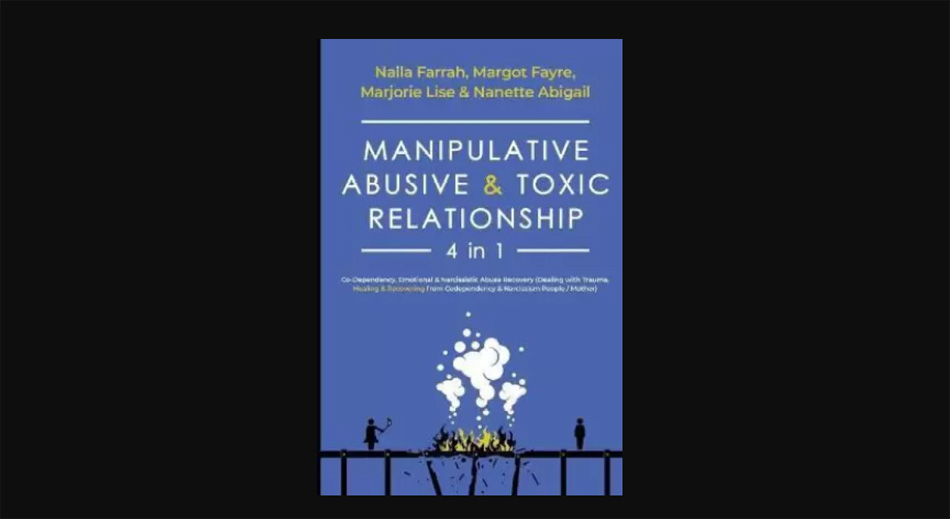
Authors: Naila Farrah, Margot Fayre, Marjorie Lise, Nanette Abigail
Print Length: 583 pages
Language: English
The book is a powerful collection of books on codependency, and narcissistic and emotional abuse recovery that will help you deal with, stop suffering, heal and finally start living a life free from manipulative, toxic, and abusive people. If you have stopped doing what you loved once for fear that you will be judged and criticized, are under constant surveillance and undeserved scrutiny, and feel suffocated and overwhelmed, then it’s about time to reconsider your relationship.
Learn to spot a narcissist and discover the reality of covert narcissism from this book; you will eventually garner the courage to cut them out of your life so they can never hurt you again. This is the book you will ever need to heal and move forward with life after suffering immense emotional turmoil. It is a collection of 4 books rolled into 1 — a) Narcissistic Abuse Recovery in Toxic Relationship, b) Codependency, c) Emotional Abuse Recovery, d) Did My Narcissistic Mother Love Me?

